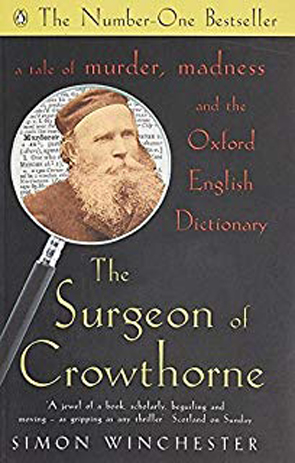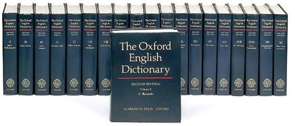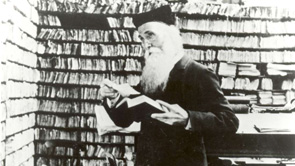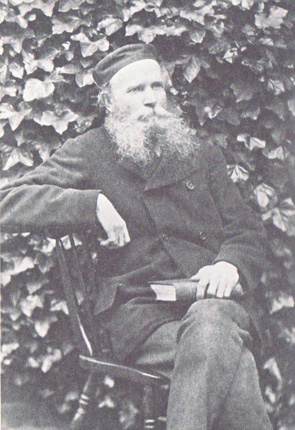. . .and for each word also, there should be sentences that show the twists and turns of meanings – the way almost every word slips in its silvery, fish-like way, weaving this way and that ,adding subtleties of nuance to itself, and then perhaps shedding them as the public mood dictates
The Surgeon of Crowthorne, page 93
This book is partly a history of the writing/compiling/creation of the Oxford English Dictionary (OED) and partly a biography of two of the men intimately connected with its creation, the main editor of the OED, Professor James Murray, and a major contributor, Dr W. C. Minor.
Before I started reading this book, I’d never truly considered just how much work went into compiling a dictionary. Dictionaries just exist, somehow. So one very important thing you get from this book is a sense of just what an incredible achievement it was to create the OED. Unfortunately this is also the smallest part of the book, so while we get a feel for the awe-inspiring work
it was, we only get a brief taste of the more than seventy years it took to create the first edition.
The majority of The Surgeon of Crowthorne is concerned with the backgrounds, motivations and personalities of Murray and Minor, and of the relationship between them.
Murray was born into a working-class family in Scotland and left school at fourteen. His lack of further formal education didn’t hold him back too much, as he loved learning. He was a voracious reader who accumulated knowledge purely for the sake of learning. Although he pursued many different interests, his overriding passion was for linguistics and phonetics and the origins of words. His self-education eventually led to his becoming a teacher, then a member of the Philological Society and eventually he was asked to take over the editorship of the OED, on the death of the first editor (Herbert Coleridge, grandson of Samuel Coleridge), and after the second editor (Frederick Furnivall) failed to make much progress and realised that he was not as much suited to the job as much as he loved the idea of the dictionary.
In contrast, Minor was born in Ceylon into a wealthy American family, was educated at Yale, became a doctor and eventually an army surgeon in the US Civil War. Unfortunately, he was probably also schizophrenic, with his symptoms starting to show while he was in the army, possibly triggered by barbaric acts he witnessed and participated in, such as being forced to brand the face of an army deserter. After being medically retired from the army, he travelled to England where the delusions he had previously displayed in the army persisted until one night he murdered an innocent passer-by. Judged criminally insane, Minor was committed to Broadmoor Asylum for life. For many years he was able to live in some comfort at Broadmoor, having been allowed a second cell which he used as a library. He was able to use his wealth to indulge in the purchase of as many rare books as he could acquire.
Compiling the OED took much, much longer than had initially been anticipated, and twenty-two years had already passed from the initial conception to Murray commencing work, and it was a further five years before the first volume (out of twelve) was published, featuring A through to Ant. It took another forty years for the work to be completed.
The idea of using volunteers to provide uses for each word in new meanings or context and to provide quotations to support these was put in place with the plan for the dictionary. But Murray extended this idea and sought fresh volunteers after he took over the project. He also had the idea of building a specialised scriptorium to house all of the slips received from the volunteers in a far more organised manner than that used previously. Although Murray inherited over two tons of paper when he took over the project, many of the slips had been nibbled by mice and the entire letter F ended up being accidentally mailed to Florence. Murray developed a much more structured approach to checking and organising the slips the moment they were received.
Minor had been in Broadmoor for around eight years when he read one of Murray’s appeals, and volunteered his services. Unlike many of the others who responded, Minor had the time to consider the mammoth task carefully, and developed his own method for compiling lists of words and their source, ready to be of use to Murray. His first contribution to the dictionary come with the second volume, when Murray was vexed over the word art
, and specifically requested people look for quotations to support the sixteen distinct meanings already identified, or for any further meanings of the word. Minor responded with twenty seven separate examples. From this point, Minor sent in contributions at an incredible rate, sometimes more than a hundred a week, and always relevant to the current words Murray and his team were working on.
Minor’s organised and steady contributions aided Murray greatly, and eventually led to a friendship between the two men which lasted until Murray’s death many years later. There is a romantic story told that Murray had no idea that Minor was an inmate at Broadmoor, and that he only discovered the truth when he finally visited Minor after Minor failed to attend a celebratory dinner at Oxford held for those who had contributed to the dictionary. Winchester’s research uncovered evidence that Murray was well aware of Minor’s circumstances from early in their relationship, and that he had visited the asylum many times.
Winchester has written a well-researched and fascinating history of the relationship between the two men, and of the deep esteem they held for each other. They came from wildly different backgrounds, and would probably never have met if not for their mutual love of language and books, and for the ambitious undertaking that was the creation of the OED – Twelve mighty volumes; 414,825 words defined; 1,827306 illustrative quotations used, to which Minor alone had contributed scores of thousands
(p.189). An excellent read, highly recommended.

 RSS Feed
RSS Feed Facebook
Facebook Instagram
Instagram YouTube
YouTube Subscribe to our Newsletter
Subscribe to our Newsletter






No one has commented yet. Be the first!